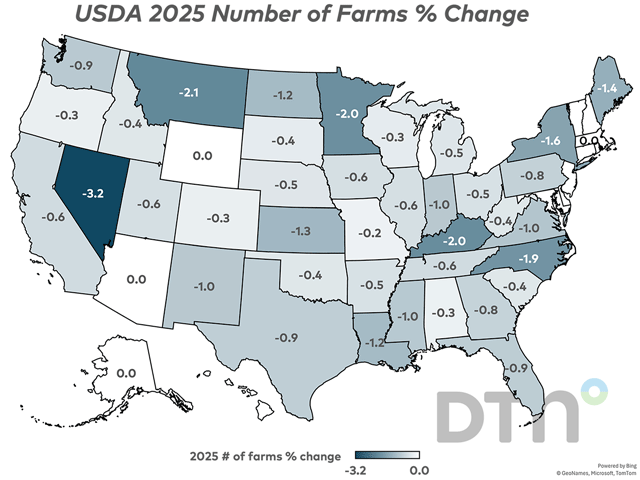Oil Futures Slip on Strong US Dollar
CRANBURY, N.J. (DTN) -- New York Mercantile Exchange oil futures nearest delivery and Intercontinental Exchange Brent crude eased into the close on a stronger U.S. dollar, trimming Friday's sharp advance after reversing off two-month or better highs in overnight trading, while also paring steeper declines on the session.
Oil futures reversed lower in early trading Monday after West Texas Intermediate and Brent crude tested resistance, with WTI futures also under pressure from a stronger U.S. dollar.
NYMEX March WTI futures settled down $0.70 at $54.56 per barrel (bbl) in an outside down session, with the contract reversing off a $55.75 nearly 11-week high on the spot continuation chart. ICE April Brent futures settled down $0.24 at $62.51 bbl, reversing off a $63.63 better-than-eight-week spot high, while widening its discount to front month WTI futures $0.51 to $7.95 bbl.
P[L1] D[0x0] M[300x250] OOP[F] ADUNIT[] T[]
NYMEX March ULSD futures settled down 0.53 cent at $1.9074 gallon, reversing from a $1.9386 better-than-eight-week high on the spot continuous chart. March RBOB futures ended 0.46 cent lower at $1.4323 gallon after trading overnight at a $1.4850 7-1/2-week high.
The modest losses are realized one-week after the United States slapped sanctions on Venezuela's state-owned oil company PDVSA, which are already causing havoc in Venezuela's ability to produce and move out oil, reports note. The sanctions allow ongoing purchases of oil by U.S. companies through April 27, however the revenue for those sales must go to blocked accounts in the United States and not to PDVSA directly, which is still controlled by Venezuelan President Nicolas Maduro. The United States now recognizes Juan Guaido as Venezuela's legitimate leader. PDVSA is demanding full payment upfront for U.S. buyers before loading cargoes.
The U.S. sanctions also include the sale of light crude and diluents to Venezuela, which is blended into Venezuela's heavy tarlike crude to make it marketable. Reports also indicate numerous oil workers aren't showing up for work, as the opposition maintains momentum with mass demonstrations against the Maduro regime. These events have stifled crude movements in Venezuela, which are expected to worsen.
Several U.S. Gulf Coast refineries are scrambling to replace Venezuela's heavy crude since their refineries are configured to process heavier blends, with the United States having imported more than 500,000 barrels per day (bpd) of Venezuelan crude in 2018.
The shortage of the dense crude grade have some speculating the United States would need to extend waivers from U.S. sanctions on Iranian oil that took effect in early November and run through May.
Brian L. Milne can be reached at brian.milne@dtn.com
(BAS)
Copyright 2019 DTN/The Progressive Farmer. All rights reserved.





